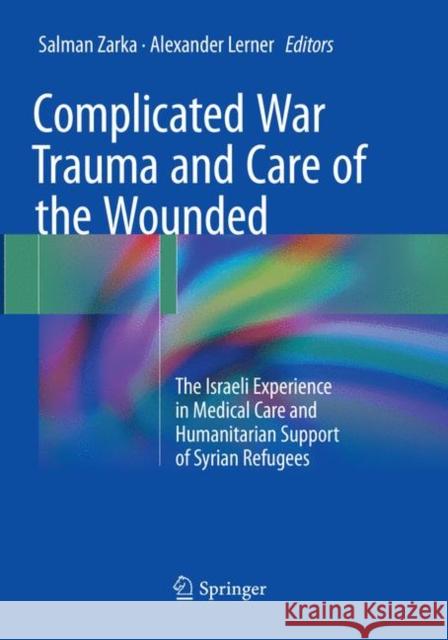Complicated War Trauma and Care of the Wounded: The Israeli Experience in Medical Care and Humanitarian Support of Syrian Refugees » książka
topmenu
Complicated War Trauma and Care of the Wounded: The Israeli Experience in Medical Care and Humanitarian Support of Syrian Refugees
ISBN-13: 9783319851303 / Angielski / Miękka / 2018 / 126 str.
Complicated War Trauma and Care of the Wounded: The Israeli Experience in Medical Care and Humanitarian Support of Syrian Refugees
ISBN-13: 9783319851303 / Angielski / Miękka / 2018 / 126 str.
cena 262,25
(netto: 249,76 VAT: 5%)
Najniższa cena z 30 dni: 250,57
(netto: 249,76 VAT: 5%)
Najniższa cena z 30 dni: 250,57
Termin realizacji zamówienia:
ok. 22 dni roboczych.
ok. 22 dni roboczych.
Darmowa dostawa!
Kategorie BISAC:
Wydawca:
Springer
Język:
Angielski
ISBN-13:
9783319851303
Rok wydania:
2018
Wydanie:
Softcover Repri
Ilość stron:
126
Oprawa:
Miękka
Wolumenów:
01











